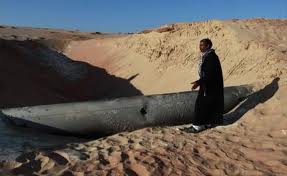
(AFP Photo)
The Ministry of Electricity needs an additional EGP 60m per day to meet power plant fuel needs this summer, Hafez Salmawy, head of the Egyptian Electric Utility and Consumer Protection Regulatory Agency, told Daily News Egypt Saturday.
In July 2013, Egypt’s overall electricity consumption reached around 28,000 MW, compared to about 21,000 MW in December 2013, Salmawy said.
Salmawy said the country will depend on loans and grants from Gulf countries to address the increase in electricity consumption; however, such funding is “now unavailable”.
The average cost of producing electricity amounts to EGP 170m per day, and EGP 58bn per year, he said. Meanwhile, the actual outcome from different electricity consuming sectors, such as industry and tourism, is valued at EGP 30bn per year.
Natural gas shortages at electricity plants have prompted the government to reduce the load on the national grid by cutting off power. To address the issue, the cabinet said in April that it would import additional quantities of natural gas, improve the efficiency of transferring fuel and diesel to stations, and add more stations to the national grid.
The electricity sector comprises around 60% of Egypt’s natural gas and diesel consumption, Salmawy said.
Meanwhile, the Federation of Egyptian Industries’ Energy Committee called on the government, in a Saturday statement, to detail the size of the energy crisis and shortage of electricity, and to take swift action to find alternative energy that can meet the needs of both factories and communities.
Tamer Abu Bakr, chairman of the committee, said that the system of energy subsidies the government is pursing is “catastrophic”, demanding that the government raise the price of electricity and petroleum products “gradually” in conjunction with support for low-income earners, and distribute 40% of the savings resulting from higher prices to holders of smart ration cards.
“The government’s database should also be updated to ensure that support goes to those who deserve it,” the committee said in the statement.
Commenting on that issue, Salmawy said that this is a “good move” from the industrial sector, adding that what matters for the sector is to gradually reduce the energy subsidies, in no shock way.
The tourism sector has made similar demands, Salmawy said.
Abu Bakr called for legislation and ministerial decisions to be issued in order to regulate renewable energies and allow for the importation of raw materials, supplies, and components needed for their use, including incentives and the abolition of taxes and customs on the materials used.



